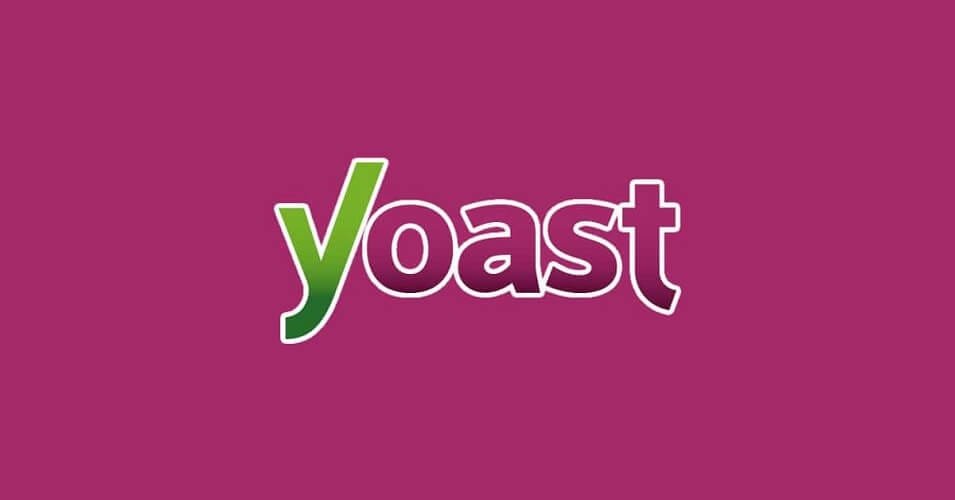So, you are going to start a blog now. What are the perfect Blogging Tools? This is why you are reading this article right now.
Don’t worry. You are at the perfect stop to learn about Blogging Tools to be appropriately used in this year.
1. Blogging Site
So, are you going to start a blog now? Where will you begin work?
Exactly. This section will cover four of the popular blogging sites and their effectiveness.
Blogger: blogger.com

Blogger, a free blog hosting service, has been around for an extended time. It was founded in 1999 and purchased by Google in 2003. As a consequence, you’ll check in quickly together with your existing Google account.
Advantages:
- Free to use and therefore initialization only takes minutes.
- Hosting, maintenance, and other technicalities are managed.
- Integrates well with other Google offerings.
- Mobile-optimized templates.
- Comes with tracking and anti-comment spam measures.
Disadvantages:
- Limited to basic blogging tools and no additional tools.
- Design options are limited.
- Updates or new features are less.
- Blogger shows advertisements on your blog.
Pricing:
Blogger is a completely free site, to be used as long as required.
WordPress: wordpress.com
WordPress is a blog site where hosting services are handled automatically. You’ll get a free blog with pretty basic features and limited tools. For advanced functionality, you would have to choose one among their premium paid plans. They are often an excellent starting line for blogging.

Advantages:
- Super easy to line up; just create an account and follow the installation wizard.
- Hosting is included, so you’ve got fewer moving parts to affect.
- The interface is even more smooth than self-hosted WordPress.
- You don’t have to worry about site maintenance, and everything is completed for you.
- Built-in stats and community functions.
- Professional and dedicated support on paid plans.
Disadvantages:
- The free account is minimal, and your blog will be hosted on a subdomain.
- Narrow customization possibilities, third-party themes, and plugins are only available on premium plans.
- Limited monetization possibilities; advertising is restricted for lower plans.
- You can lose your site if you disrupt the terms and services of the platform.
- Ads and branding are visible on your site unless you pay to get rid of them.
Pricing:
Paid WordPress.com plans can cost between $4 and $25 per month, which are billed annually. WordPress tiers increase the quantity of space for storing, features such as monetization and support. With the Business plan, you will be able to install external plugins and themes and even connect your site with Google Analytics.
Wix: wix.com
Wix is a basic drag-and-drop featured site to create a simple blog or even a website. Wix sites are popular for their efficiency, as you don’t require any coding skills. You will be able to create a site within a few hours and host effectively.

Advantages:
- Ability to customize your website with templates and third-party apps.
- No coding skills are required; you’ll achieve everything with the graphical interface.
- Quick and straightforward setup includes top-notch hosting.
- Lots of design options and everything is made with HTML5.
- Has a feature to design your blog using a human-made intelligence automatically.
- Comes with free stock images.
Disadvantages:
- The free account comes with limited abilities, traffic, and storage and has Wix branding and ads.
- The number of free apps is restricted.
- You are unable to vary your site template after choosing it.
- The e-commerce abilities of Wix are limited, even on paid plans.
- The service charges for several things, so costs rack up easily.
- You are unable to manoeuvre your site elsewhere and take your content with you.
Pricing:
Wix site is subscription-grounded and offers different packages. Prices start from $13/month for 2GB of bandwidth and 3GB of storage. You also get the ability to attach a custom domain. More expensive plans add more storage and bandwidth, free domains, apps, and the ability to make a web store and take away the ads. The expensive plan, $39/month, also comes with a VIP support facility.
Squarespace: squarespace.com
Squarespace may be a drag-and-drop website builder that is aimed at small business owners. It’s an excellent all-in-one solution for non-technical people and offers hosting, domain registration, and, therefore, the possibility for e-commerce. It has blogging capacities, which are the rationale why it’s among the simplest blog sites out there.

Advantages:
- Simple to use and beginner-friendly.
- Professional design templates are available.
- SSL encryption is made into the platform.
- Ability to create a web store.
- Free trial to check to drive the platform.
- Includes hosting and a custom domain.
- 24/7 customer support
Disadvantages:
- Users are limited to the characteristics that Squarespace offers.
- Integrates only with a couple of third-party services and tools.
- The personal plan is restricted to twenty pages and two contributors.
- Slightly overpowered if all you would like maybe a blog.
Pricing:
Squarespace is a subscription-based site. It comes with only two plan types: Personal and Business. Personal is $12/month, and the Business is $18/month. You get a reduction and a free custom domain if you are paying annually.
Both plans accompany unlimited pages, bandwidth, and storage. The Business plan contains e-commerce, and marketing features, and allows you to customize your website design using CSS and JavaScript. You can use your name, which also comes with extra costs. There’s also a 14-day free trial to check the site’s functionality.
2. Content Writing Tools
Whether you’re a beginner just beginning to blog or an old pro looking to grow your site, a large number of blogging and content writing tools and resources out there are often overwhelming.
Content writing tools can be very efficient when you are starting a blog.
The following list is brief. It’s crammed with only a couple of categories. And that only mentions the most straightforward blogging tools and those recommended to newbie bloggers.
Blog Content Idea Generation
BuzzSumo

Enter a subject or a URL into the BuzzSumo search box, and you’ll get a wealth of data on the content that performs best for social media sharing. BuzzSumo is often super useful for fleshing out an existing idea to seek out the right angle or in taking an extensive check of the content that does well (and the blogs that roll in the hay best) in your niche.
Quora
The crowded question-answer website can help lead you to the kinds of questions that real people are asking, questions that you simply can answer in-depth with a blog post. Look for your keyword, and follow topics associated with your blog’s focus.

Portent Title Maker
Type a subject into the Portent tool, and you will get a sample blog post title, complete with effective and witty breakdowns of why the title might bring an honest read. Refresh as repeatedly as you’d like for brand-spanking new ideas.
Quick Sprout

Type a URL into Quick Sprout, and you receive an analysis of the site’s performance and content. The “Social Media” tab shows you which of the posts from the location are home runs, and you’ll take inspiration from the highlights on the list.
3. Blog Editors for Desktop
Grammarly
Paste your article into Grammarly’s online grammar checker and see how it performs against checks for spelling, syntax, punctuation, style, and more. The original score is liberal to see. The specifics of what to vary (as well as suggestions from Grammarly) accompany their paid plans.
Hemingway Editor
An excellent desktop writing tool that can enhance your writing. Get a moment for reading level grade and word count. Available for Windows and Mac.

Open Live Writer
Best desktop editor for Windows OS, and you’ll publish directly from your desktop.
Frase
An online-based writing tool that is integrated with WordPress, medium and a couple of other platforms. It uses AI technology to assist you in improving your content.
4. Create Blog Graphics
Canva

Apparently, the most-used image tool, Canva makes image creation super comfortable with their premade templates, custom image sizes for each social media channel, drag-and-drop interface, and cool fonts. Every original image you see received from our social accounts was made in Canva.
Skitch
Grab screenshots and annotate with notes, arrows, and icons. Skitch connects on to your Evernote account so you’ll save all the screengrabs you’re taking.
Share as Image
Convert text from any webpage into a shareable image with the Share as an Image browser extension. The professional plan ($8/month) even allows you to add custom branding to the image and choose between an enormous number of background photos and fonts.
Meme Generator

Sometimes an easy meme says quite the other image could. Meme Generator enables you to create a meme from scratch or use an existing meme character to feature your saying.
5. Content Distribution Tools
Click to Tweet
Made by the team at CoSchedule, this WordPress plugin makes it simple to spotlight snippets of your blog post for readers to share on Twitter simply. For websites not based on WordPress, consider a tool like ‘ClickToTweet’.

Buffer
Once your blog post is written and published, you’ll find a simple sharing schedule with Buffer. Schedule your new article to travel to your social channels multiple times with different headlines or images attached to every update.
Filament
In a single WordPress plugin, Filament contains a gaggle of useful features, including Flare, a social share button plugin that makes it easy for others to share your blog post on Twitter, Facebook, Buffer, and even more spots like Hacker News and Reddit. Other Filament apps include MailChimp subscribe form, Google Analytics tracking, all-in-one profiles, code management, and share highlighter.
BufferApp
BufferApp will never let your social media account run out of content. It also offers a mobile app called “Daily”, which allows you to add high-quality content to your social media profiles.
6. SEO (Search Engine Optimization) Tools
Keyword Planner

How does one frame your excellent idea into a far-reaching blog post (that people can easily find)? Check for popular keywords. Google’s Keyword Planner allows you to enter a series of keywords, and Google returns results on search volume and recognition, also as related keywords, which may spark a thought for you.
ScreamingFrog
Desktop SEO tool, which allows you to check your blog from the web-spider’s point of view. Available for Windows, Ubuntu and Mac OS.
Yoast WordPress SEO plugin

SEO plugins can assist you in fine-tuning your idea and blog post into a selected keyword or phrase, which will help with search results and keep your blog post focused. With Yoast’s plugin, you’ll type within the keyword that you’re after, and Yoast tells you ways many various spots on the page the post appears and a pleasant green dot for when you’re able to go.
Google Trends
Is your blog post idea a well-liked one? You can run the subject through Google Trends to ascertain search volume for the various keywords and phrases you’re considering using in your articles.
Conclusion
Blogs are getting popular these days, as everyone starts focusing on writing something and on having a sort of income.
Yes, you can advertise on your blog and get some decent revenue. However, you must understand the basics of blogging if you are a newbie to the section.
The article contained various blogging sites, content writing tools and even some blogging tools. These tools can be handy in increasing your blog’s popularity.
If you are starting a new blog, it is highly recommended that you use these blogging tools to develop your blog ranking.
Moreover, these content writing tools are even worth it this year and worth it for further years too.
Stay tuned to our website to learn more about blogging and blogging tools.
